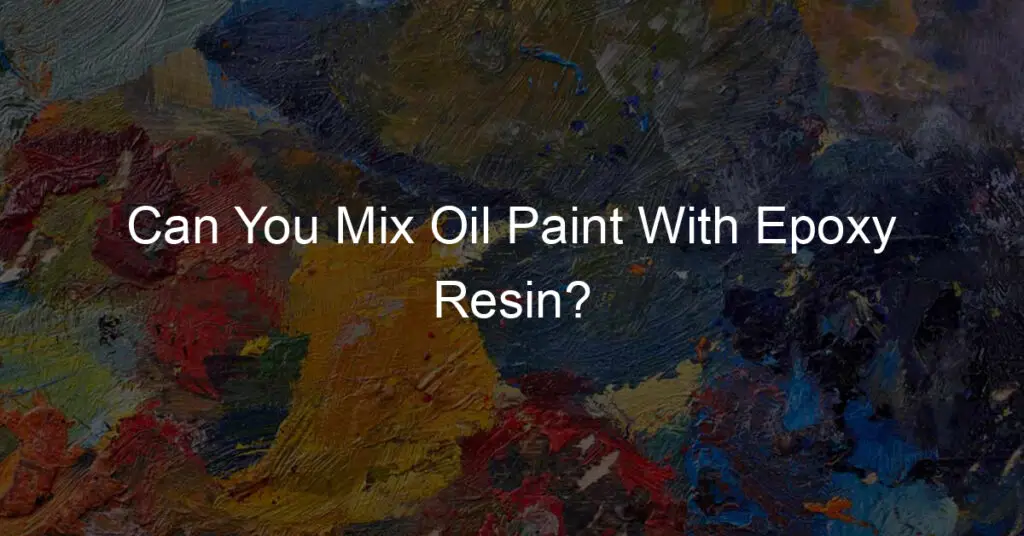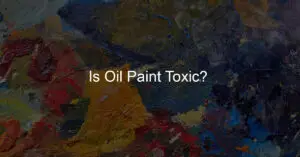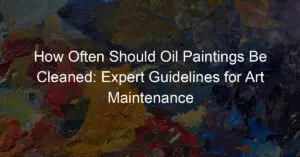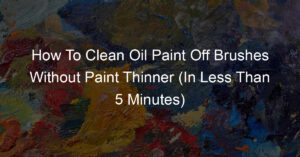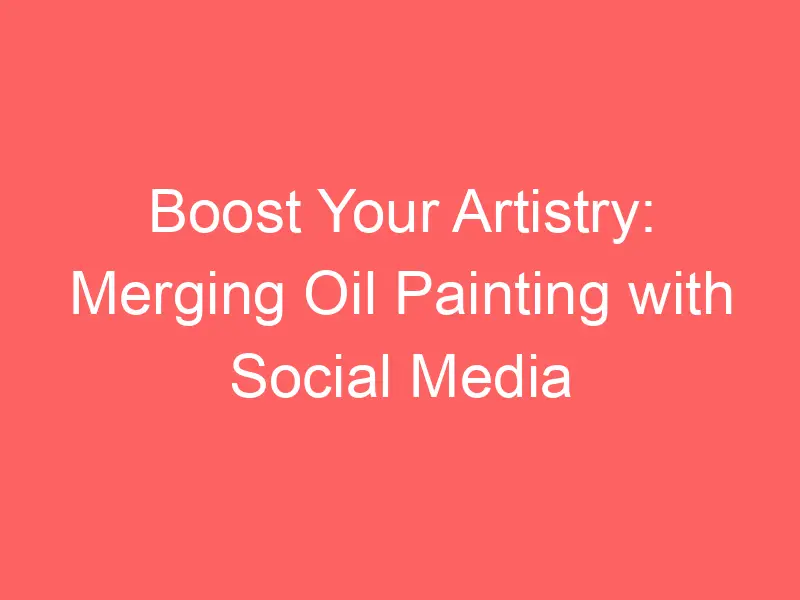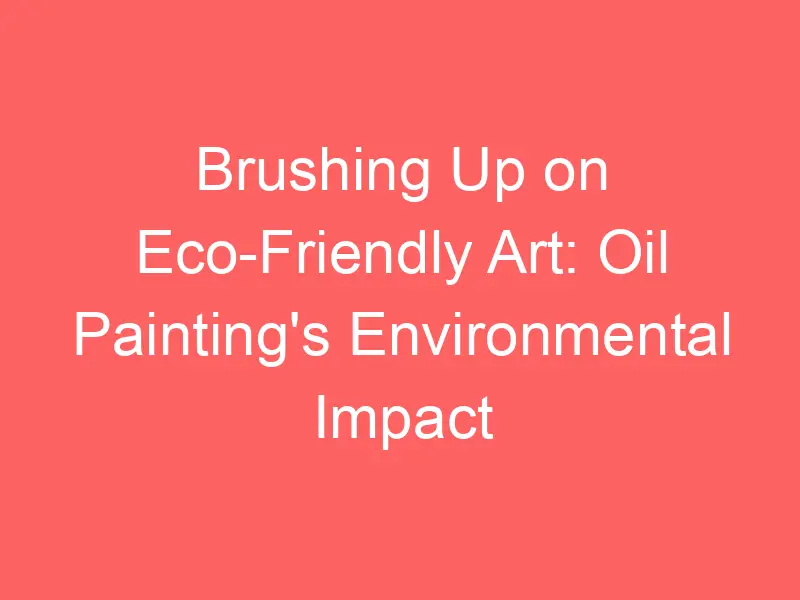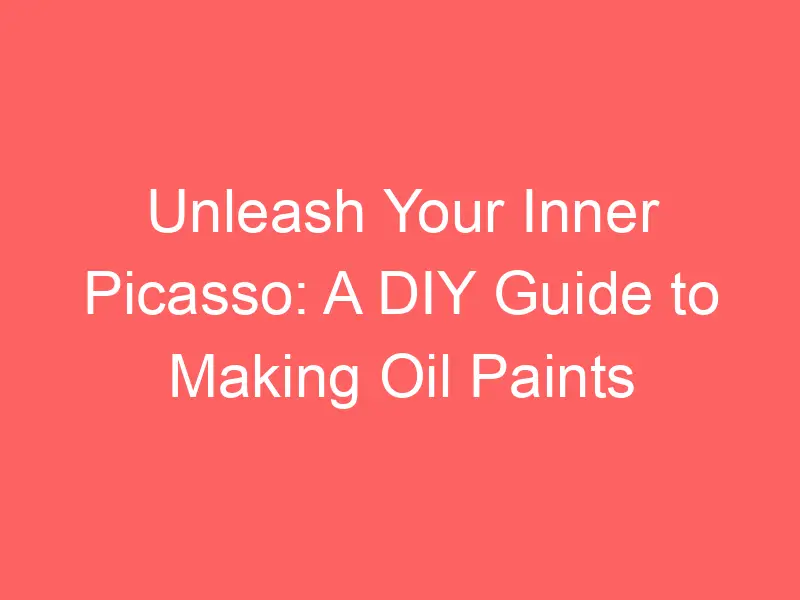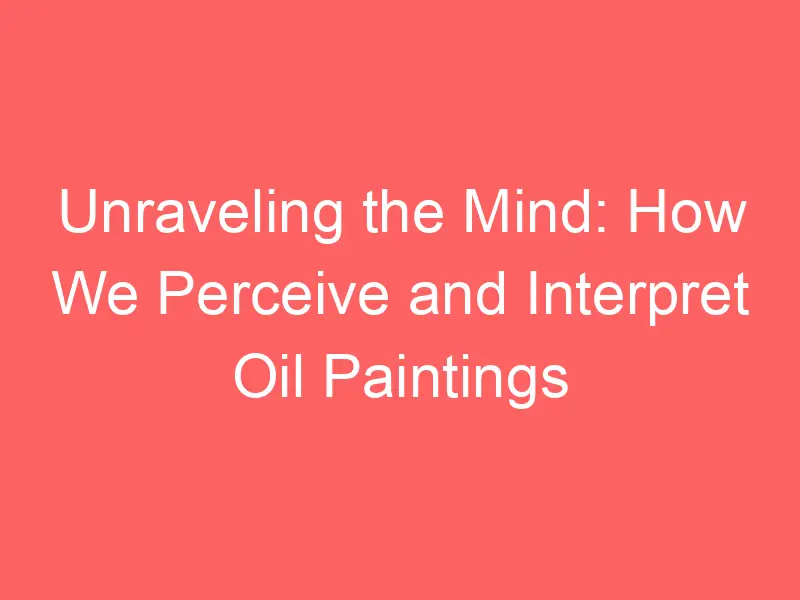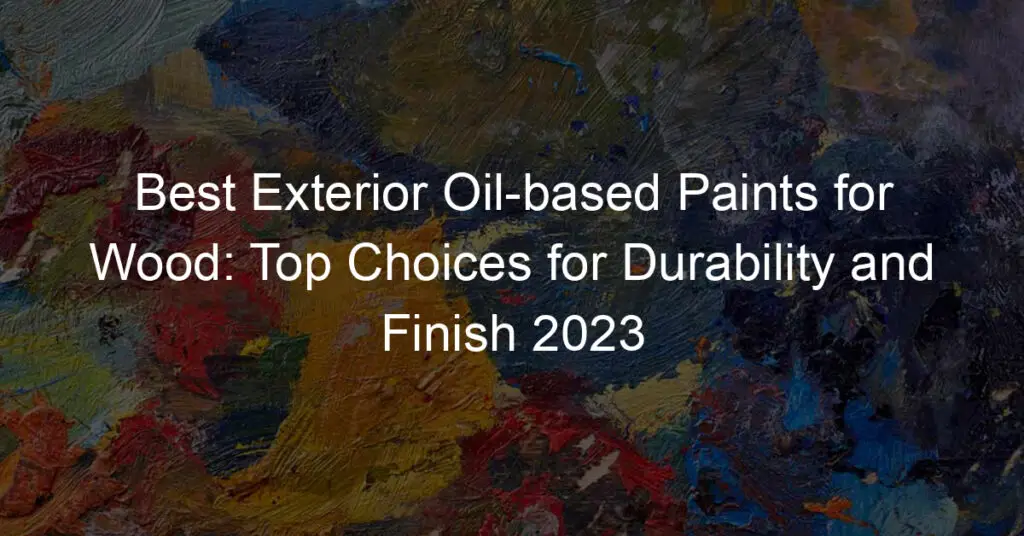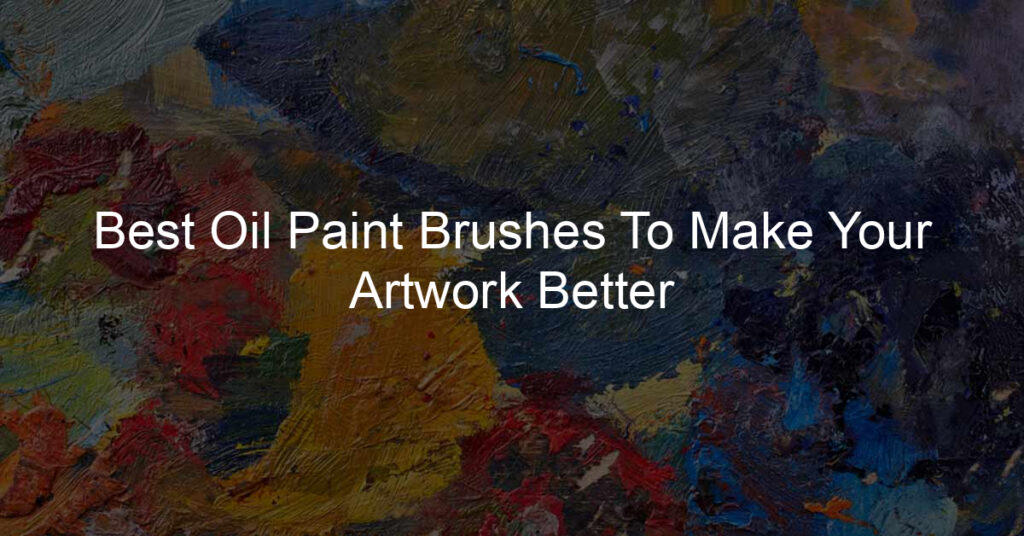Mixing oil paint with epoxy resin has intrigued artists for years, as it combines the rich color and depth of traditional oil paints with the durability and high-gloss finish of epoxy resin. This combination can yield stunning and unique results in artwork, but it also raises questions about the compatibility and practicality of mixing these two different mediums.
When considering this technique, it is essential to understand the properties of both oil paint and epoxy resin. Oil paints are composed of pigments suspended in a drying oil – like linseed oil – which makes them versatile and blend well with traditional thinners and mediums. On the other hand, epoxy resin is a two-part chemical mixture consisting of a resin and hardener, known for its strong adhesion, glass-like finish, and long-lasting durability.
Careful experimentation and proper techniques are crucial in achieving the desired outcome when attempting to mix oil paint with epoxy resin. Knowledge of the drying process, curing times, and compatibility of additives is critical to ensure that the final product will maintain both its visual appeal and structural integrity. As you venture into this creative realm, it is important to remember that patience, practice, and a keen eye for detail are your best allies to produce remarkable pieces of art.
Understanding Epoxy Resin and Oil Paint
Epoxy resin is a versatile, high-performance thermosetting resin that can be used in a wide range of applications. It is known for its excellent adhesion, high strength, and durability, making it popular in industries such as construction, automotive, and marine. Epoxy resins consist of a two-component system – a resin and a hardener – that, when combined, undergo a chemical reaction resulting in a strong, rigid, and moisture-resistant material.
Oil paint, on the other hand, is a type of slow-drying paint that consists of pigments suspended in oil, usually linseed oil. It has been used for centuries by artists for its rich colors, smooth application, and long-lasting finish. Oil-based paints are generally thicker and more viscous than water-based paints such as acrylics, which allows them to be applied in multiple layers without disturbing the underlying colors.
When it comes to mixing oil paint with epoxy resin, there are a few factors to consider. First, epoxy resins and oil-based paints have different solvents and curing mechanisms, which may cause compatibility issues when mixed together. Oil paints dry through oxidation, while epoxy resins cure through a chemical reaction between the resin and the hardener. This difference in curing processes can lead to problems such as incomplete curing and poor adhesion between the epoxy and oil paint layers.
Moreover, since epoxy resins are generally clear and transparent, mixing them with oil paints can result in a loss of vibrancy and depth in the paint’s colors. The opacity of oil paint may also prevent the resin from curing properly by restricting light penetration, which is necessary for the chemical reaction between the resin and hardener to occur.
Despite these potential issues, some artists have experimented with combining epoxy resins and oil paints to create unique artistic effects. If you wish to try this combination, it is important to perform tests on a small scale before committing to a large project. One approach to doing this is to let the oil paint layer dry completely and then apply a thin layer of epoxy resin over it. This can create a glossy, durable finish while preserving the colors and texture of the oil paint.
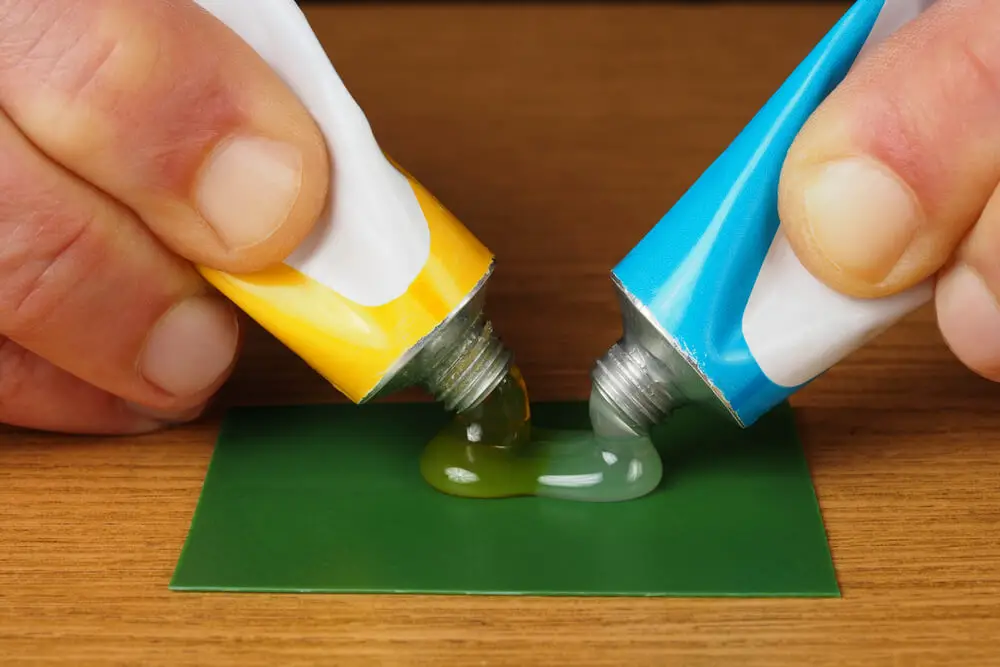
Factors to Consider Before Mixing
When thinking about mixing oil paint with epoxy resin, several factors need to be considered to ensure compatibility and successful results.
Compatibility: First and foremost, check if the oil paint and epoxy resin are compatible for mixing. Some epoxy resins may not work well with oil paints, resulting in undesirable outcomes such as uneven curing or separation of components. Research the specific products you plan to use and conduct a small test before committing to a large project.
Oil paints and water-based paints can have different reactions with epoxy resin. Water-based paints are more likely to cause curing issues, as the water content may interfere with the curing process. Oil paints, on the other hand, might show more promise in terms of compatibility.
Cure and Curing Time: Different epoxy resins have varied curing times, which can impact the final result. Consider the manufacturer’s recommended cure time for the epoxy resin and the drying time required for the oil paint. A faster curing time may not allow the oil paint to properly adhere to the resin surface. Balancing these times can lead to a more successful mixture and finished product.
Adherence: The ability of the oil paint to adhere to the epoxy resin is crucial for a successful outcome. Some oil paints may struggle to bond with the resin surface, leading to issues such as peeling or flaking. A surface preparation or primer might be needed to ensure proper adhesion between the two materials.
In summary, compatibility, curing times, and adherence are key factors to consider before mixing oil paint with epoxy resin. Evaluating these factors and conducting thorough research on your specific products will provide the best chance of achieving a successful end result.
Methods to Combine Oil Paint and Epoxy Resin
Mixing oil paint with epoxy resin can be an interesting way to combine the rich colors and textures of oil-based pigments with the durability and aesthetic appeal of epoxy. To successfully combine these two mediums, it is important to consider the compatibility of the materials, as well as the desired visual effects.
One option is to mix a small amount of oil paint directly with the epoxy resin, creating a colored resin. This method allows for some color variation while maintaining the strength and clarity of the epoxy. However, it is important to note that oil paints and epoxy resins have different drying times and properties, so it is essential to experiment with this method to achieve the desired results. Mixing a high-quality, compatible pigment with the epoxy resin will have the best results.
A more common method to incorporate oil paint into an epoxy resin artwork is to paint on top of the cured resin surface. This technique allows artists to take advantage of the depth and translucency of epoxy resin while still using traditional oil painting techniques. For optimum results, apply a thin layer of oil paint, allowing it to fully dry, and then apply a clear coat of epoxy resin over it. This combination will not only protect the paint but also create a visually striking piece.
Another method for combining oil paints and epoxy resin is to use them in separate layers. Epoxy resin can be tinted with a variety of colors, pigments, and additives such as glitter. To achieve a multi-layered effect, a base layer of colored epoxy can be applied, followed by a layer of oil paint, and then another layer of epoxy. This creates a depth in the artwork that can be further enhanced by additional layers or special effects.
Just as epoxy resin can be tinted or mixed with color, artists can also use additives to enhance the appearance of their epoxy and oil paint creations. For example, using powdered pigments, metallic flakes, or glitter, in combination with translucent epoxy resin can create a visually stunning effect in your artwork. These additives can be used either in the epoxy resin layer or mixed directly with the oil paint.
While mixing oil paint and epoxy resin may require some experimentation and practice, it can open up a world of creative possibilities. Artists can experiment with new techniques, textures, and visual effects to create unique and captivating creations by combining the best of both the traditional oil painting and the epoxy resin worlds.
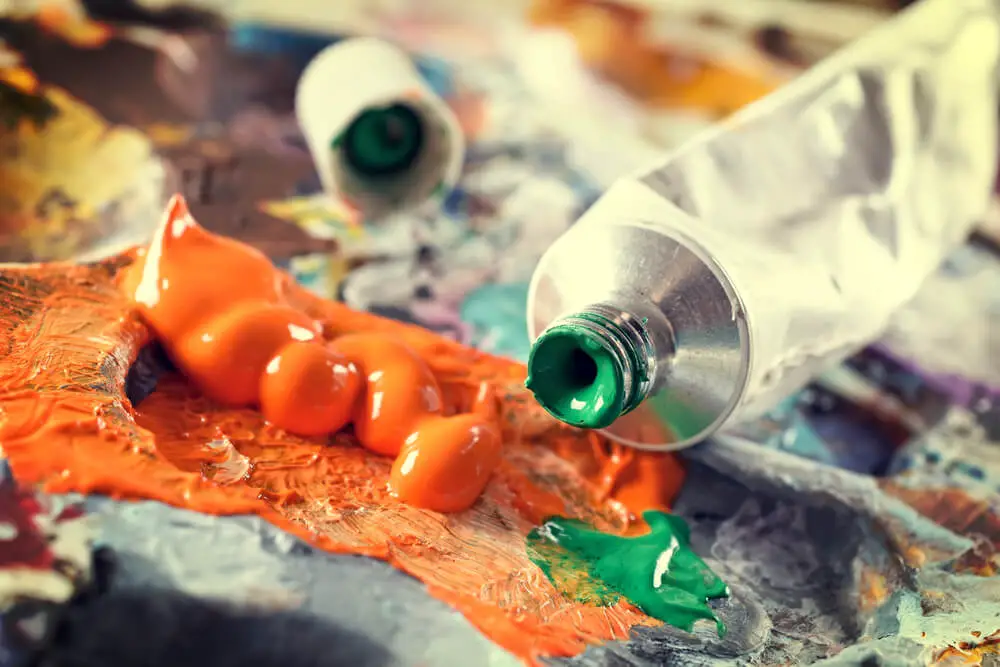
Safety Precautions and Guidelines
When working with oil paints and epoxy resin, it’s crucial to follow proper safety procedures to protect yourself and others. The materials involved can be toxic, flammable, and emit potentially harmful fumes. Here are some safety guidelines to follow:
First and foremost, always wear appropriate personal protective equipment (PPE). This includes a mask, gloves, and goggles. A mask is particularly important while handling epoxy resin since it helps filter out toxic fumes and prevent respiratory issues. Additionally, gloves protect your skin from potential chemical reactions, while goggles help guard against splashes entering your eyes.
Remember to work in a well-ventilated area. Good airflow helps disperse any harmful fumes and minimizes the risk of inhaling toxic chemicals. Open windows and use fans to circulate fresh air, ensuring that fumes don’t linger and pose a health risk.
Be cautious of bubbles during the mixing process. Mixing epoxy resin with oil paint can give rise to bubbles that may trap harmful chemicals. Properly stirring the mixture and allowing it to sit before application helps release these bubbles, thus reducing the risk of uneven curing and trapped toxins.
Pay close attention to heat during the curing process. Excessive heat can be generated when epoxy cures, which poses a fire hazard. This is particularly true for large-scale projects and thick layers of resin. Ensure you work on a heat-resistant surface and keep flammable materials away from the work area. Furthermore, monitor the curing temperature closely and allow the finished project to cool down slowly.
Lastly, appropriate handling and disposal of chemicals are crucial in maintaining safety. Store all chemicals in their designated, appropriately labeled containers, and keep them out of reach of children and pets. Dispose of waste materials according to local regulations, ensuring you don’t cause any harm to the environment or public health.
By adhering to these safety precautions and guidelines, you can work confidently and efficiently with oil paint and epoxy resin, minimizing risks and ensuring a successful finished project.
Alternatives to Mixing Paint with Epoxy Resin
If you’re considering mixing oil paint with epoxy resin but are hesitant due to potential hazards or chemical reactions, there are suitable alternatives available. These alternatives can help you achieve similar results with lower risks.
Acrylic Paint with Epoxy Resin: Acrylic paint can be an excellent choice instead of oil paint when working with epoxy resin. Being water-based, acrylic paint has a low odor and is easier to mix with epoxy resin. Additionally, acrylic paint dries quickly, and its compatibility with epoxy resin makes the mixture less prone to unwanted chemical reactions.
Enamel Paint: Another alternative to mixing oil paint with epoxy resin is enamel paint. This paint type is oil-based but has a more compatible formulation for use with epoxy resin. Enamel paint provides a hard, glossy finish that is durable and long-lasting. It can be an ideal choice for projects that require a robust and colorful surface.
Latex Paint: Latex paint is water-based, making it another suitable option for mixing with epoxy resin. This paint type is less toxic and has fewer odors compared to oil-based options. However, latex paint may not provide the same level of durability or hard finish as other paint types when combined with epoxy resin.
Watercolor Paint: If you’re looking for a more delicate and transparent finish, consider using watercolor paint instead of oil paint with epoxy resin. Although watercolor paint may not provide the same level of adhesion as other paint types, it can still create beautiful effects when combined with epoxy resin. However, keep in mind that the water-based nature of watercolor paint may increase the risk of a negative reaction with epoxy resin.
When deciding on an alternative to oil paint for your epoxy resin project, it’s crucial to consider the compatibility of the chosen paint type to ensure a successful outcome. Experiment with different options, keeping in mind factors like drying time, finish, and overall durability, to find the best paint type for your specific needs.
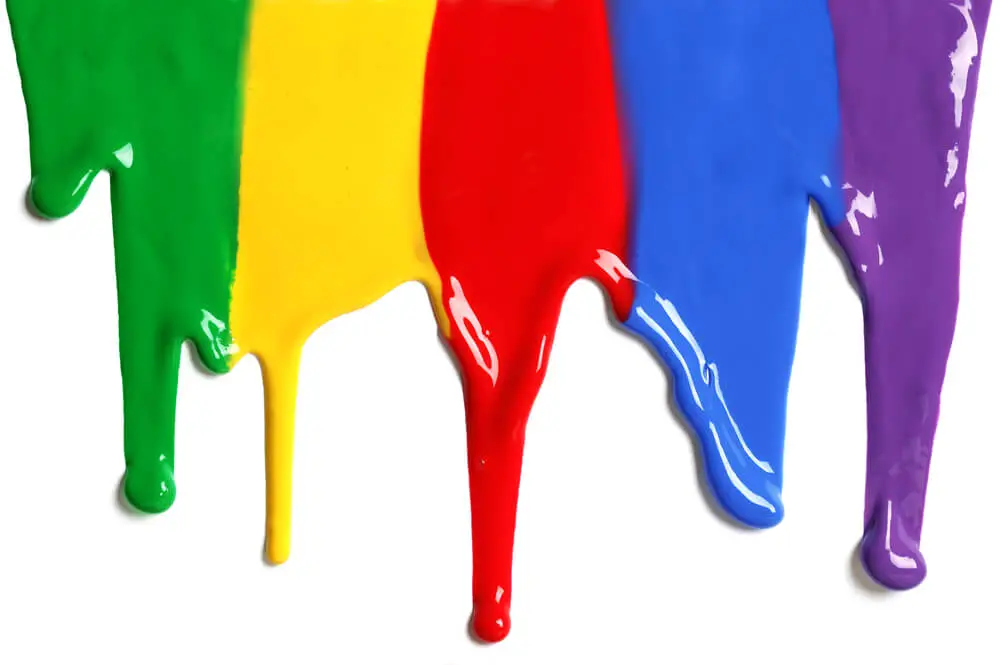
Uses and Applications
Oil paint and epoxy resin can be combined in various ways to create captivating artworks and functional pieces. Both mediums offer unique properties that make them popular choices among artists and DIY enthusiasts.
One popular use for both oil paint and epoxy resin is creating stunning, glass-like finishes on surfaces such as tables and countertops. Epoxy resin is a durable, self-leveling material that can be poured over surfaces to create a glossy, clear finish. Mixing oil paint with the resin allows for the incorporation of colors and special effects, giving surfaces a striking appearance.
Another application of these two mediums is in painting with epoxy resin. This involves mixing oil paint with the resin to produce a pigmented, fluid mixture which can then be applied to a canvas or other surface with brushes, palette knives, or other tools. Due to the self-leveling nature and long curing time of epoxy resin, artists can create intricate designs and patterns with ease. It’s essential to prime the surface with a suitable primer before painting, as this ensures the proper adhesion of the resin mixture.
It’s important to note that mixing oil paint with epoxy resin may result in a cloudy appearance if not done correctly. To prevent this, it’s advised to mix the oil paint and resin in small increments, ensuring the color is evenly dispersed throughout the resin before applying. Using a slow-curing epoxy may also help to minimize the chance of cloudiness.
Lastly, combining oil paint and epoxy resin can be used to create unique finishes on various surfaces. For example, an artist might mix oil paint with resin to create a marbled effect on a canvas or a wooden surface. This technique can add depth and character to ordinary objects, transforming them into stunning pieces of art or functional masterpieces.
In summary, mixing oil paint with epoxy resin offers a myriad of applications for both functional and artistic purposes. While careful mixing and priming are crucial to achieving the desired results, the potential to create captivating pieces employing both mediums is undeniable.
Tips and Techniques
When mixing oil paint with epoxy resin, there are a few key tips and techniques to follow for the best results. These methods will help you achieve a smooth, clear coat and incorporate any desired effects into your artwork.
First and foremost, it’s essential to keep your brushes clean, as epoxy resin can be sticky and difficult to work with if proper care isn’t taken. Use a separate set of brushes for the oil paint and epoxy to avoid cross-contamination. For a clean and precise application of epoxy, consider investing in high-quality brushes designed specifically for epoxy or resin work.
Surface preparation is critical for successful adhesion between the oil paint and epoxy resin. Start by lightly sanding the surface you plan to apply the epoxy resin on, ensuring it’s free of dirt and dust. This step will create a textured base for the epoxy resin to adhere to, ultimately improving the bond between the layers. After sanding, wipe the surface clean with a damp cloth and let it dry before applying the oil paint.
To achieve a smooth and consistent layer of epoxy, mix the resin and hardener according to the manufacturer’s instructions. Stir the mixture slowly and thoroughly, avoiding bubbles that may affect the final result. If you want to add a tint to the epoxy, it’s best to use a compatible tint or pigment specifically designed for epoxy resin. Be cautious when introducing any additional materials, as improper compatibility could result in an unclear or uneven coat.
When applying the epoxy resin to the oil paint, work in even, gentle strokes. This will ensure a consistent layer and help avoid visible brush marks. Depending on the effect you’re aiming for, the epoxy layer’s thickness can be adjusted. Thinner layers will provide a delicate, glossy finish, while thicker layers can create a more dramatic, glass-like appearance. Remember that the curing time may vary based on the thickness of the epoxy layer, so plan accordingly.
Combining oil paint with epoxy resin allows artists to experiment with various effects and textures. For instance, you can create a marble-like appearance by swirling different tints of epoxy resin together or use additives, like mica powder or metallic flakes, to introduce intriguing visual elements. Be sure to research the specific additives and effects you’d like to achieve, as these will have their own unique application techniques.
In summary, mixing oil paint with epoxy resin can produce stunning and unique artworks when approached with the right tools, techniques, and attention to detail. By following these tips and maintaining a confident, knowledgeable approach, you’ll be able to create one-of-a-kind pieces in no time.
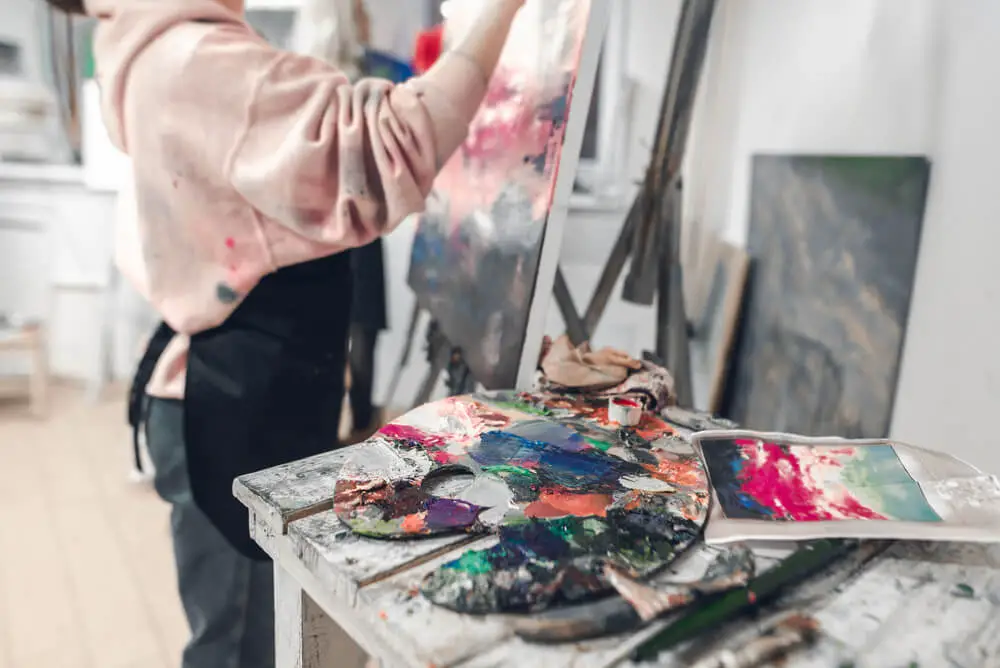
Troubleshooting Common Issues
When mixing oil paint with epoxy resin, some common issues may arise that need to be addressed to ensure a smooth and successful process.
Peeling and Shedding: One common issue when mixing oil paint with epoxy is peeling or shedding of the paint. This can happen when the epoxy resin fails to properly bond with the oil paint. To prevent this, make sure to properly clean and prepare the surface before applying the epoxy and oil paint mixture. Additionally, using a two-part adhesive as a binder can help improve the bond between the paint and epoxy.
Damaged or Cracked Resin: In some cases, the epoxy resin can become cracked or damaged, compromising its resistance and durability. This often occurs when the mixture is not properly prepared or the resin becomes contaminated. To fix this, thoroughly mix the two components of the epoxy resin and avoid adding excessive amounts of dyes or oil paint.
Incompatibility with Latex Paint: Mixing latex paint with epoxy resin can lead to a gummy, unworkable mixture that may cause adhesion and curing issues. It is recommended to use oil-based paints instead, as they are better suited for compatibility with epoxy resins.
Binder Issues: It is essential to choose the right binder when mixing oil paint and epoxy resin to ensure proper adhesion and curing. A two-part adhesive can serve as an effective binder, helping to create a more stable and durable mixture.
Resistance Issues: Epoxy resin and oil paint mixtures are known for their resistance to wear, tear, and chemicals. However, if the mixture is improperly prepared or if the surface is not properly prepared, it can result in a reduced resistance. Make sure to follow the manufacturer’s instructions for the epoxy resin and the oil paint to ensure optimal performance.
By addressing these common issues, you can confidently mix oil paint with epoxy resin and achieve the desired results.
Choosing Appropriate Colorants and Effects for Epoxy Resin
When working with epoxy resin, selecting the correct colorants and effects is crucial for obtaining the desired aesthetic. Various coloring agents can be utilized, each with its specific characteristics and benefits. In this section, we’ll discuss some popular colorants and how to achieve desired effects in your project.
Mica powders are a top choice for adding shimmer and depth to epoxy resin. These finely-ground minerals provide a metallic or pearl-like appearance and are available in an array of colors. Mica powders are mixed directly into the resin, allowing for easy adjustments to the color intensity. They also maintain the resin’s strength and durability, ensuring a long-lasting, glossy finish.
Using food coloring is another option, as it comes in a wide range of colors and is readily available. However, food coloring is water-based, which can be problematic in epoxy resin, potentially causing uneven curing or a cloudy outcome. If using food coloring, consider keeping the concentration low and conducting a test batch to check for compatibility.
Spray paint can also be incorporated into epoxy resin projects. The application technique involves lightly misting the spray paint onto the surface of the poured resin, creating unique patterns and effects. Remember to use this method sparingly, as excessive spray paint can compromise the resin’s curing and overall durability.
When it comes to dyes, alcohol-based ink dyes are an excellent choice, offering vibrant hues and easy mixing with the resin. These dyes do not affect the resin’s strength or curing time, making them a popular choice for achieving rich, translucent colors. However, since dyes can be potent, use caution to avoid over-saturating the resin.
In terms of technique, layering colorants can produce stunning visual effects. Build up multiple layers of contrasting or complementary colors to create depth, giving your epoxy resin project an eye-catching, dynamic appearance.
In conclusion, choosing the right colorants and effects for your epoxy resin project will greatly impact the final outcome. Always be mindful of the compatibility and strength of the chosen colorant. By experimenting with different techniques and color combinations, you can achieve a beautiful and durable result with a glossy finish.
Frequently Asked Questions
Can acrylic paint be mixed with epoxy resin?
Yes, acrylic paint can be mixed with epoxy resin. Ensure that the paint is fully mixed into the resin to avoid potential clumping. Mixing a small amount of paint to resin can give a beautiful and vibrant color to your project. It is important to test the desired color in a small sample before applying it to a bigger piece to achieve the expected results.
Does enamel paint work with epoxy resin?
Yes, enamel paint can work with epoxy resin. However, while mixing the two elements, extra care should be taken to ensure that the paint is evenly mixed into the resin for a consistent color and finish. Enamel paints are oil-based and may require a longer drying time. Make sure the enamel paint is completely dry before applying a layer of epoxy resin.
Is latex paint compatible with epoxy?
Latex paint is water-based, and due to its composition, it is not the best choice to mix with epoxy resin. Epoxy resin requires a chemical reaction to harden, and adding water-based materials may interfere with that reaction and lead to mixed results. It is better to use paints specifically designed for use with epoxy resins.
Can I use spray paint along with epoxy resin?
Yes, spray paint can be used in conjunction with epoxy resin. For best results, allow the spray paint to dry completely before applying epoxy resin. Make sure to use a spray paint that is compatible with the surface you are working on. The added color from the spray paint can produce interesting effects when coated with a clear layer of epoxy resin.
Will resin adhere to oil paint?
Epoxy resin can adhere to oil paint, but the oil paint must be fully cured before applying the epoxy. Oil paint can take several weeks or even months to dry completely, depending on the thickness and environment. Once the oil paint is fully cured, you can apply epoxy resin directly on top of the painted surface. Ensure the surface is clean and free from dust or contaminants for optimal adhesion.
What materials can be added to epoxy for color?
There are several materials that can be added to epoxy resin to achieve a variety of colors and effects. Some of these include pigment powders, liquid colorants, alcohol inks, and mica powders. These pigments are specifically designed for use with epoxy resins and ensure consistent and vibrant colors. Always follow the manufacturer’s recommendations for mixing and usage to achieve the best results.

